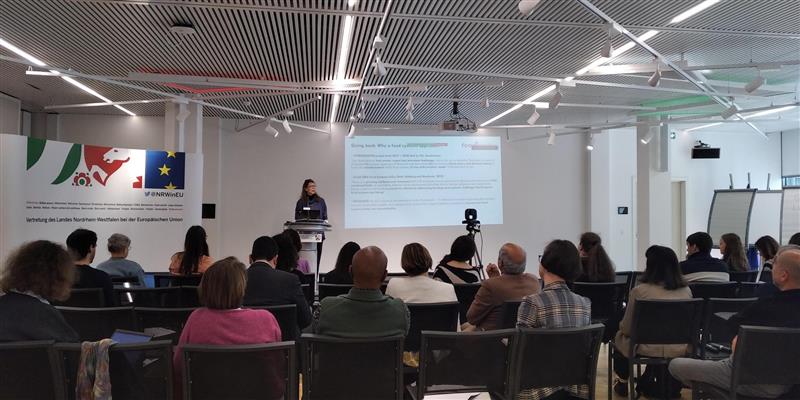How is the food systems approach implemented in call for funding?
Read a summary of an analysis conducted by FOODPathS on 21 calls that will help to shape the next FutureFoodS funding programme

FOODPathS has analysed 21 calls for funding to understand how a food systems approach (FSA) can be implemented into future call mechanisms of FutureFoodS (the Horizon Europe Partnership SFS). The analysis was conducted on calls launched by ERA-nets, HEU Partnerships, regional calls, HEU Framework Programme and Foundations.
Thanks to the analysis, some recommendations were highlighted and they should be taken into account by FutureFoodS when preparing its own calls for funding.
The main recommendations emerged from the analysis are the following:
1. Provide a definition of systems approach or a clear explanation of what is meant;
2. Be mindful and consistent with terminology, e.g. when using typical elements of a systems approach such as multi-/inter-/transdisciplinarity;
3. Cross-disciplinarity, stakeholder engagement, and multi-actor approach are highly de-manded and also of great relevance for a systems approach call; think about where and how to ask for these aspects and consider the differences between the concepts;
4. When applying a systems approach it is important to consider both synergies and trade-offs;
5. Think about how impact shall be achieved by the projects, how the food systems ap-proach contributes to impact and provides guidance and support towards applicants;
6. What additions to the proposals are sensible and what shall they contain (e.g. impact plan, Dissemination Explotiation and Communication plan, stakeholder engagement plan, implementation/valorisation plan etc.); adapt to the systems approach and consider also follow-up and adjustments over time (revisiting the plan);
7. Networking activities facilitated at programme level can be valuable to align and/or collaborate with other projects or programmes but they need to be backed up with dedicated resources (they might even be a necessity for co-design and co-creation);
8. Be open to new funding instruments beyond classical projects (e.g. knowledge hubs) to create mechanisms for fostering connectivity, co-creation and inclusiveness.
In this page, you can consult a summary of this analysis, meanwhile a full version of the report is available here.